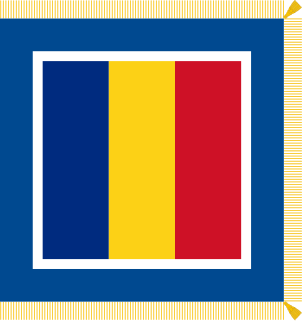
Impeachment is the process by which a legislative body levels charges against a government official. It does not mean removal from office; it is only a statement of charges, akin to an indictment in criminal law. Once an individual is impeached, he or she must then face the possibility of conviction by a legislative vote, which judgment entails removal from office.
The Government of Italy is a democratic republic established by a 1946 constitution. It consists of legislative, executive, and judicial subdivisions, as well as a Head of State, or President.

Women's suffrage is the right of women to vote in elections. Beginning in the late 1800s, women worked for broad-based economic and political equality and for social reforms, and sought to change voting laws in order to allow them to vote. National and international organizations formed to coordinate efforts to gain voting rights, especially the International Woman Suffrage Alliance, and also worked for equal civil rights for women.

The President of Romania is the head of state of Romania. The President is directly elected by a two-round system for a five-year term. An individual may serve two terms. During his/her term in office, the President may not be a member of any political party.

The Reichspräsident was the German head of state under the Weimar constitution, which was officially in force from 1919 to 1945. In English he was usually simply referred to as the President of Germany. The German title Reichspräsident literally means President of the Reich, the term Reich referring to the federal nation state established in 1871.
The Constitution of the State of Wisconsin is the governing document of the U.S. State of Wisconsin. It establishes the structure and function of state government, describes the state boundaries, and declares the rights of state citizens. The Wisconsin Constitution was written at a constitutional convention held in Madison, Wisconsin in December 1847 and approved by the citizens of Wisconsin Territory in a referendum held in March 1848. Wisconsin was admitted to the United States on May 29, 1848. Although it has been amended over a hundred times, the original constitution ratified in 1848 is still in use. This makes the Wisconsin Constitution the oldest U.S. state constitution outside of New England. Only Massachusetts, New Hampshire, Vermont, Maine, and Rhode Island use older constitutions.

The International Alliance of Women is an international non-governmental organization that works to promote women's human rights around the world, focusing particularly on empowerment of women and development issues and more broadly on gender equality. The basic principle of the IAW is that the full and equal enjoyment of human rights is due to all women and girls. It is one of the oldest, largest and most influential organizations in its field. The organization was founded as International Woman Suffrage Alliance (IWSA) in 1904 in Berlin, Germany, by Marie Stritt, Millicent Fawcett, Carrie Chapman Catt, Susan B. Anthony and other leading feminists from around the world to campaign for women's suffrage. The IWSA was headquartered in London, and it was the preeminent international women's suffrage organization. Its emphasis has since shifted to a broad human rights focus. Today it represents over 50 organizations world-wide comprising several hundred thousand members, and has its seat in Geneva.

Democratic development in Hong Kong has been a major topic since the transfer of sovereignty to China in 1997. The one country, two systems principle allows the Hong Kong government to administer all areas of government except foreign relations and (military) defence separately from the national Chinese government. Many Hong Kong citizens became concerned about democratic development when the first Chief executive of Hong Kong Tung Chee-hwa appeared to have mishandled this issue. Other democracy-related issues involving human rights and universal suffrage became the new focal point for the pro-democracy camp. Ever since the 1950s, the Chinese government has continually threatened the British in attempting to bring any democratic developments in Hong Kong. Attempts to bring Hong Kong citizens on to the negotiating table by the British during the Sino-Anglo discussions were rejected by Beijing in the late 1980s. The last governor Chris Patten faced a great deal of opposition in changing the former colony's political system.

Proposition 4 of 1911 was an amendment of the Constitution of California that granted women the right to vote in the state for the first time. Senate Constitutional Amendment No. 8 was sponsored by Republican State Senator Charles W. Bell from Pasadena, California. It was adopted by the California State Legislature and approved by voters in a referendum held as part of a special election on October 10, 1911.

A referendum to amend the Constitution of Liberia was held on 23 August 2011. Voters chose whether to ratify four amendments regarding judge tenure, elections scheduling, presidential candidate requirements and the electoral system. The National Elections Commission of Liberia (NEC) oversaw the referendum.

A constitutional referendum was held in Liberia on 7 May 1935, alongside general elections. The changes to the constitution ensured that President Edwin Barclay remained in office without the need for the presidential elections due that year. Although it was claimed to be for economic reasons, the government feared that an election may lead to instability that would lower confidence of foreign powers and creditors. The next elections took place in 1939.
Women in Switzerland gained the right to vote in federal elections after a referendum in February 1971. In 1991 following a decision by the Federal Supreme Court of Switzerland, Appenzell Innerrhoden (AI) became the last Swiss canton to grant women the vote on local issues; AI is the smallest Swiss canton with c. 14,100 inhabitants in 1990.
A constitutional referendum was held in Maryland Colony on 29 March 1854. The new constitution was approved by voters and general elections were subsequently held on 15 May, before independence was declared on 8 June.

A constitutional referendum was held in Liberia on 7 May 1946. The change to the constitution was approved in the Legislature in December 1945, and would grant women the right to vote. It was approved by voters and came into force on 10 December 1946.

A constitutional referendum was held in Liberia on 1 May 1945. The change to the constitution was approved in the Legislature in December 1945, and would grant the right to vote to citizens living in the three inland provinces, providing they paid a "hut tax". It also granted parliamentary representation to Grand Cape Mount County and Marshall territory. The changes were approved by voters.

A constitutional referendum was held in Liberia on 3 May 1949. The changes to the 1847 constitution were approved in the Legislature in 1948, and abolished the two-term limit on presidents. The change was approved by voters.

A constitutional referendum was held in Liberia on 4 May 1943, alongside general elections. The changes to the constitution required the president to be a Liberian citizen by birth or to have lived in Liberia for at least 25 years, as well as allowing constitutional referendums to be held separately from general elections. The changes were approved by voters.

A constitutional referendum was held in Liberia on 4 April 1972. The changes to the constitution would lower the voting age from 21 to 18, and had been announced by President William R. Tolbert, Jr. shortly after taking office. On 15 February the date of the referendum was set to coincide with a by-election for the Vice Presidency. The change required a two-thirds majority in favour, and was approved by voters.

A referendum on the length of terms of office was held in Liberia on 4 May 1869. The proposals put forward by Parliament on 29 January 1869 would increase the presidential term from two to four years, increase the term of House of Representatives members from two to four years, and increase the term of office of Senators from four to eight years. President-elect Edward James Roye claimed that the changes were approved and that he would remain in office until 1873. However, the legislature, which oversaw the counting process, declared the proposals to be rejected.

A constitutional referendum was held in Azerbaijan on 24 August 2002. Voters were asked eight separate questions, all of which were approved with at least 96% voting in favour.










